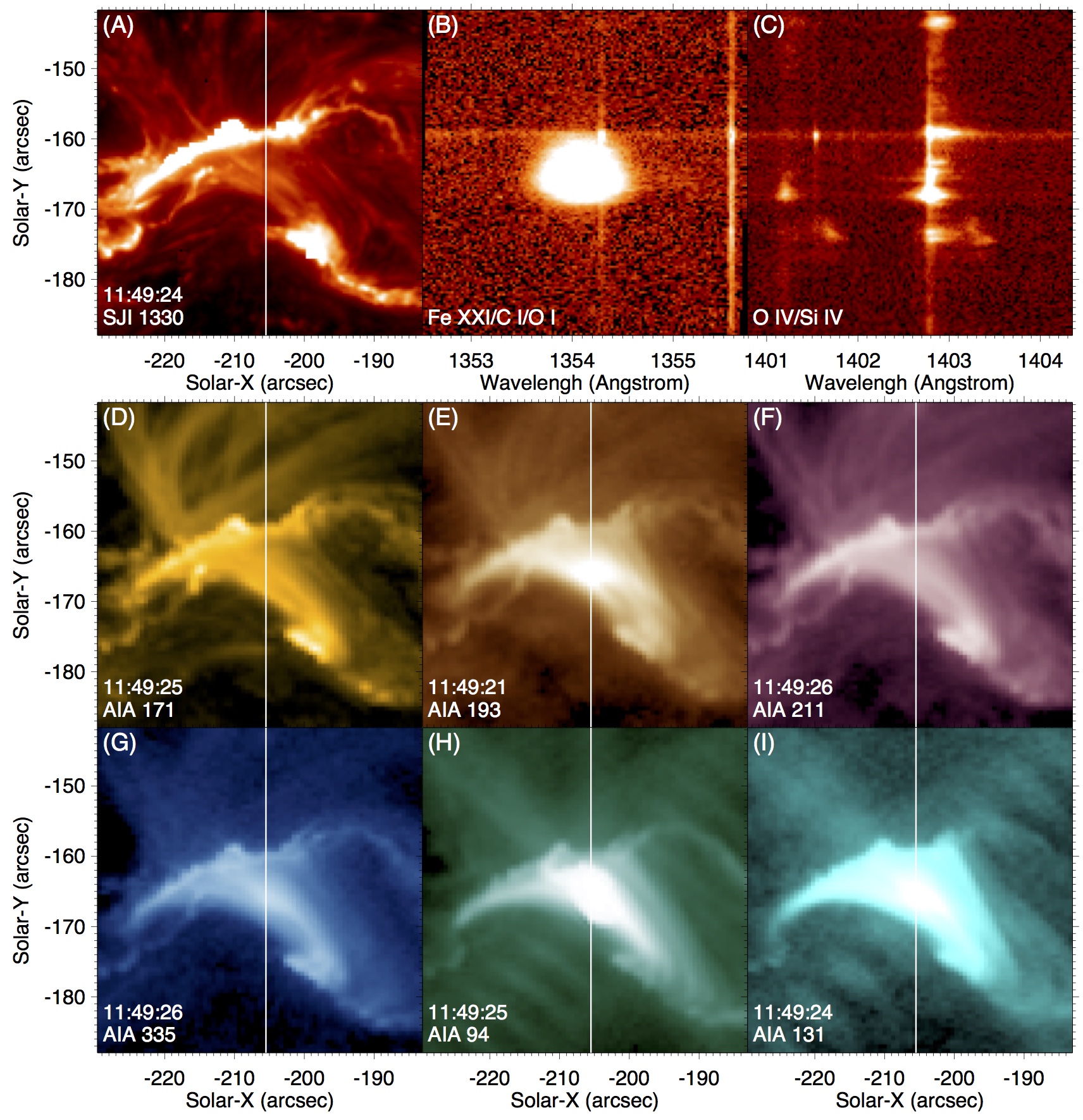through Spectroscopic Observations of Flare Ribbons
--- an ISSI team led by Hui Tian

|
Diagnosing Heating Mechanisms in Solar Flares through Spectroscopic Observations of Flare Ribbons --- an ISSI team led by Hui Tian |
 |
|
|
|
|
|
|
|
Abstract: Solar flares are among the most energetic events in the solar system. Flare ribbons are one of their best observed features that can provide critical diagnostics for the fundamental flare physics not yet well understood. With a high cadence up to a few seconds and a resolution of ~0.33 arcsecond, NASA's Interface Region Imaging Spectrograph (IRIS) mission has revealed unprecedented details of ribbon dynamics in hundreds of flares since July 2013. Characteristics of emission line profiles observed at flare ribbons, e.g., Doppler shifts, line widths, asymmetries, central reversals and wing enhancements, are manifestations of various physical processes involved in solar flares. We propose a timely investigation to understand flare heating mechanisms through joint efforts of spectroscopic observations focusing on flare ribbons and advanced numerical modeling. Specifically, observers on the team will fully characterize the temporal evolution of several key emission lines, e.g., Mg II, Si IV, and Fe XXI, at ribbons in at least ten IRIS flares. Modeler team members will perform state-of-the-art radiative-hydrodynamic simulations by experimenting various heating mechanisms to reproduce observations. Supplementary space and ground-based observations will be used to provide additional constraints. We anticipate that the proposed team work will significantly advance our understanding of flare heating mechanisms and thus well prepare us for future opportunities offered by new space missions such as ESA's upcoming Solar Orbiter. |
 Tian et al. (2016) for more figures from the team members, click here |
Current News |
Related Papers |
| Maintained by Ying Li (yingli@pmo.ac.cn) | Last update: 24 October 2018 |